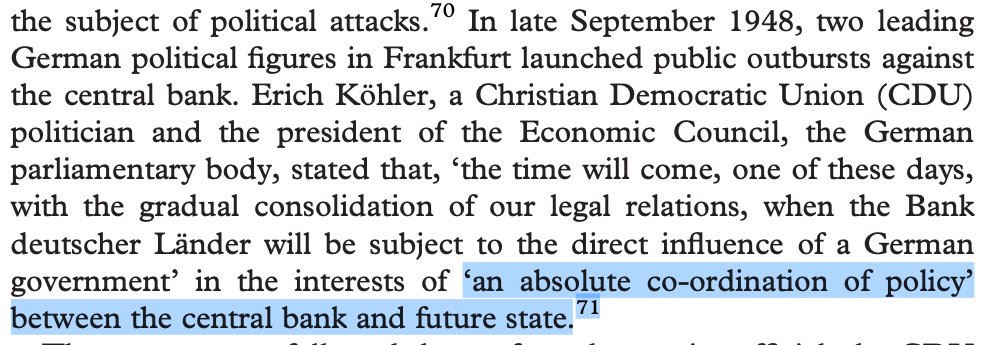
bankers against Biden's fiscal plan could really do with some proper fact-checking before sending their op-ed to the FT.
We all understand 'it's ideology, stupid!', but no excuse for lazy arguments.
ft.com/content/d49b53…
We all understand 'it's ideology, stupid!', but no excuse for lazy arguments.
ft.com/content/d49b53…
apparently, the Gospel according to Morgan Stanley is that we havent had enough neoliberalism for the past 4 decades 

if you click on BIS link, it tells you monetary policy, not higher deficits, are associated with wealth inequality.
Incidentally, unconventional monetary policy through which central banks basically rescued banks after they nearly destroyed the global financial system in 2008
Incidentally, unconventional monetary policy through which central banks basically rescued banks after they nearly destroyed the global financial system in 2008
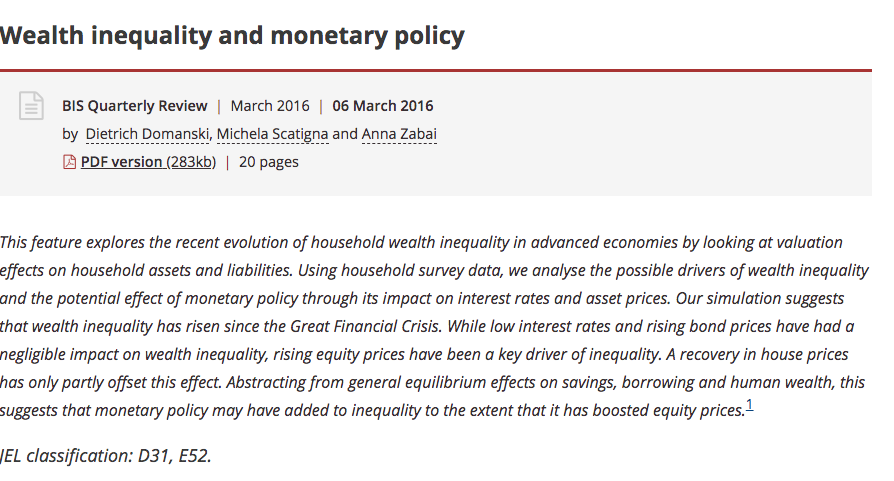
speaking of government spending, who else but Morgan Stanley got $10 billion in equity investments from US Treasury in 2008?
I cant think of a more productivity-enhancing outlay for 10bn of public funds.
I cant think of a more productivity-enhancing outlay for 10bn of public funds.
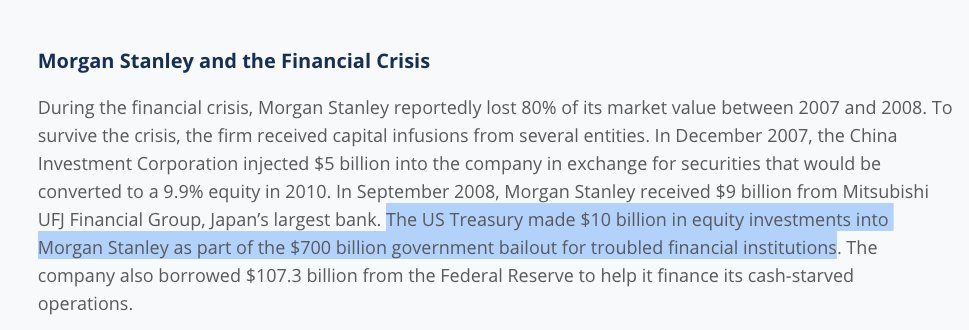
the OECD 'evidence' that 'four straight decades of growing government intervention in the economy have led to slowing productivity growth' is also, excuse my language, a lot of bullshit. 

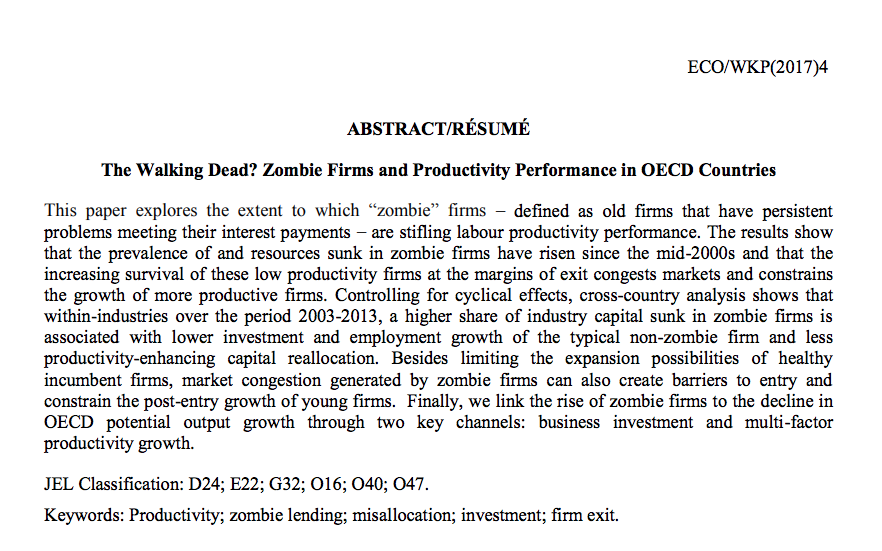

if anything, there is stronger evidence that monetary policy is more important for explaining some of the productivity puzzle.
to blame government spending, instead of the Morgan Stanleys of this world, for monetary policy is, let's say, a bit rich
to blame government spending, instead of the Morgan Stanleys of this world, for monetary policy is, let's say, a bit rich
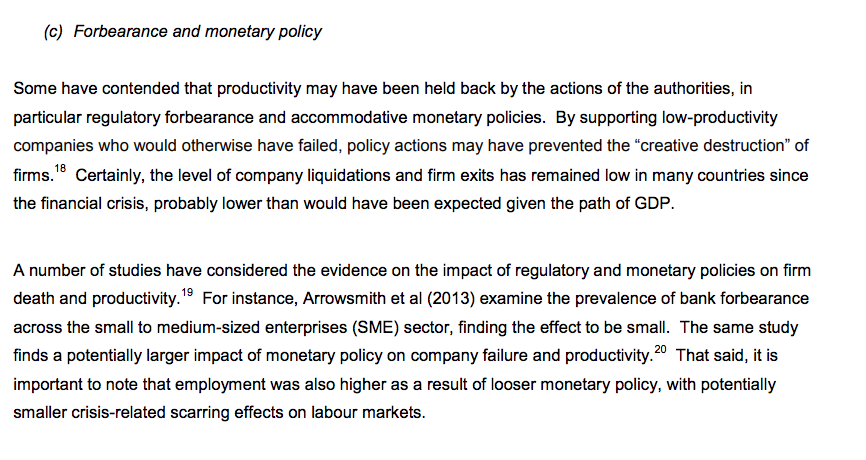
I really like that someone high-up in Morgan Stanley can write about the 'low interest rate elite'
it's on par with Erdogan's 'high-interest rate cabal'
it's on par with Erdogan's 'high-interest rate cabal'
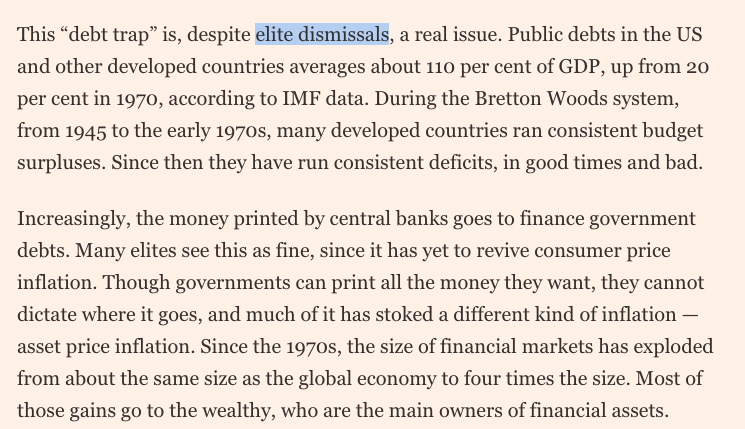
'my team cannot prove causality, and I wont even link to the study proving correlation, but it must be true because I am a serious person making substantive arguments backed by strong evidence' 

the average person understands that some bankers do get a free lunch, and munch on it while penning underwhelming op-eds.
I for one am all for Biden taking it away. Or better, redistribute it to some migrant workers breaking their back for $10 an hour.
I for one am all for Biden taking it away. Or better, redistribute it to some migrant workers breaking their back for $10 an hour.

• • •
Missing some Tweet in this thread? You can try to
force a refresh







